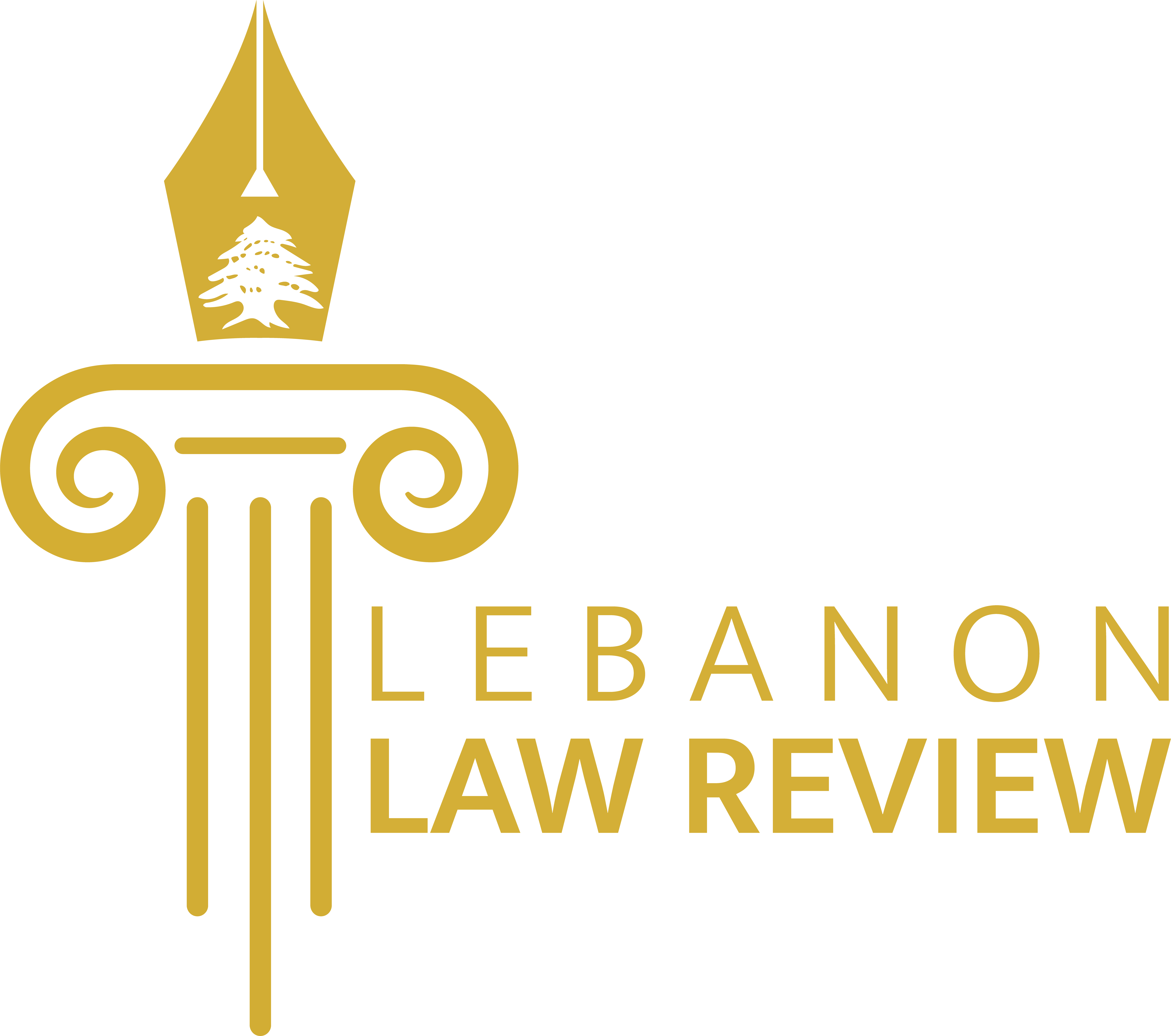About the Lebanon Law Review
The Lebanon Law Review, a subsidiary of HAQQ, LLC is an academic institution headquartered in Beirut, Lebanon primarily concerned with producing the highest quality research into law and politics. The Lebanon Law Review aims to be the leading and most influential institution of academic legal research in Lebanon built around an inclusive and sustainable legal ecosystem.
Antoine Kanaan and Issam Amro founded Lebanon Law Review on the 26th of February 2020.
All law students are welcome to join our team. We look for creative, brave, smart, and determined members. Furthermore, there is no need to be a law student. Legal experts are welcome to voice their opinion and we are happy to publish. Of course, there are certain guidelines.
Our organizational structure is outlined below, followed by our mission and values.
Organizational Structure
We are made up of three main bodies: the Academia, the Media Department, and the Research Center. The Editor in Chief is responsible for overall operations of the Lebanon Law Review, overseeing each body’s performance. Our in house HR Department ensures talent acquisition and recruitment such that it satisfies the need and growth of the three bodies.
Research Center
Led by the Research Director, the Research Center is our think tank concerned with producing cutting-edge and up to date legal and sociopolitical research for our partners and collaborators. We possess the skills, talent, and connections to conduct complex on-the-ground bespoke research services and analysis for our partners.
Academia
Operated at the highest standards, the Academia is concerned with producing reliable academic research into law and politics. It is composed of a Legal Division, led by the Legal Director, and a Political Sciences Division led by its own Political Director. A team of editors and a board of technical advisors assist them in their duties.
Media Department
Led by the Creative Director, the Media Department produces in-house original media content relating to legal educative literature and sociopolitical issues. These include educative videos, webinars, filmed conferences, seminars, and events, talk shows, live appearances, and interviews among others. Furthermore, the Creative Director also supervises all marketing activities.
Lebanon Law Review: Our Mission
The Lebanon Law Review is on a mission to:
- Enlighten. The Lebanon Law Review aims to enlighten the academic community and society at large with credible data and writings related to the fields of law and political science. Forward thinkers are courageous enough to realize that what they think they know may not be true.
- Reform. Lebanon’s laws are sometimes obscure and contradictory, making legal awareness an uphill battle. Our aim is to increase general societal legal literacy and perhaps inspire a general passion for the law.
- Inspire. Lebanon lacks an abundance of opportunities, more so for the legal youth. The Lebanon Law Review represents a chance for Lebanon’s legal youth – its students and junior practitioners – to catapult their professional career by gaining reputable experience and tangible skillsets that will set them apart from their peers. We wish to be a vehicle for their success, and to open up new doors they had not considered.

Lebanon Law Review: Our Values & Principles
In brief, our values are:
- Freedom and Human Rights. Human Rights; free speech, free opinions, and a free press. Therefore we will defend your right to state your opinion even when we do not always agree. The individual is the building block of society.
- Rule of Law. An independent judiciary where all are equal before the law.
- Academic. We abide by academic values, principles, and ethics.
- Transparency. As we expect it of others, we similarly hold ourselves to this high standard.
- Objectivity. In Lebanon, politics and the law intermingle and can be hard to separate at times. Indeed any political opinions we voice are simply in service of our legal arguments. We are not a product of power politics and we never will be. Furthermore we reaffirm that Lebanon Law Review is apolitical by nature as a publication.
- Patriotism. We love Lebanon and it must remain sovereign.
- Diversity. Perfectly exemplified in “Hi kifak cava?”. We embrace Lebanese multiculturalism when we publish in three languages; English, Arabic, and French. Talk about universities.
